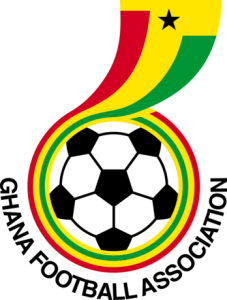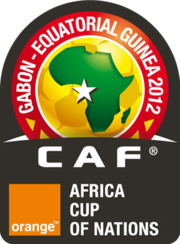Orange Africa Cup of Nations – Sunday 05 February 2012
Gabon (1) – (1) Mali (AET: Mali won 5-4 on penalties) [Stade d’Angondjé]
Ghana (2) – (1) Tunisia (AET) [Stade de Franceville]
Yesterday I tipped the two “G’s” (Gabon and Ghana) to complete the Semi-Final line-up, but only came up with one out of two tonight.
 In the case of Gabon, “G” stood for “Going, going, gone”, as there was no dream of progress for The Panthers and as a result both co-hosts exited at the Quarter-Final stage. However, it all looked so promising in Libreville, when after an even first-half, Gabon took the lead on 55 minutes with a goal best described as a comedy of errors. Gabon launched a free-kick into the Mali penalty area which was badly misjudged by Mali as they tried to clear. The ball fell to Gabon forward Aubameyang who cut the ball back into the box where it was missed by the Mali defence. The ball ran to Eric Mouloungui who drove the it towards goal and which found its way in after a deflection from two Mali players who were more effective in getting in each others way, rather than blocking the goal-bound effort. Gabon went in search of a second and captain Daniel Cousin hit the post when it was easier to score. The clock ticked down and it looked like Gabon were edging their way to the Semi-Final. Then with six minutes remaining, a ball into the Gabon box was headed back towards the penalty spot by Modibo Maiga. Substitute Tidiane Diabate with his back to goal, controlled, turned and fired under the body of Didier Ovono in the Gabon goal. Mali were level mainly through great skill by Diabate, but the finger will be pointed at Ovono, in that he should have kept the shot out. Extra-time came and went and suddenly it was the drama and agony of penalties. Six successful penalties had the scores at 3-3 as Gabon’s star performer Pierre-Emerick Aubameyang stepped-up. His kick was saved and the advantage shifted to Mali. Bakaye Traoré coolly put Mali 4-3 up, but Gabon stayed in the tie as Ecuele Manga casually chipped in his penalty to level the score at 4-4. It all came down to Seydou Keita who with calmness passed his spot-kick left footed into the net. It was a lesson in penalty taking and England fans will hope Fabio Capello was taking note! Despair for Gabon and elation for Mali. The Eagles were through and have the dubious pleasure of facing Ivory Coast in the Semi-Final. For now though it will be about enjoying the moment.
In the case of Gabon, “G” stood for “Going, going, gone”, as there was no dream of progress for The Panthers and as a result both co-hosts exited at the Quarter-Final stage. However, it all looked so promising in Libreville, when after an even first-half, Gabon took the lead on 55 minutes with a goal best described as a comedy of errors. Gabon launched a free-kick into the Mali penalty area which was badly misjudged by Mali as they tried to clear. The ball fell to Gabon forward Aubameyang who cut the ball back into the box where it was missed by the Mali defence. The ball ran to Eric Mouloungui who drove the it towards goal and which found its way in after a deflection from two Mali players who were more effective in getting in each others way, rather than blocking the goal-bound effort. Gabon went in search of a second and captain Daniel Cousin hit the post when it was easier to score. The clock ticked down and it looked like Gabon were edging their way to the Semi-Final. Then with six minutes remaining, a ball into the Gabon box was headed back towards the penalty spot by Modibo Maiga. Substitute Tidiane Diabate with his back to goal, controlled, turned and fired under the body of Didier Ovono in the Gabon goal. Mali were level mainly through great skill by Diabate, but the finger will be pointed at Ovono, in that he should have kept the shot out. Extra-time came and went and suddenly it was the drama and agony of penalties. Six successful penalties had the scores at 3-3 as Gabon’s star performer Pierre-Emerick Aubameyang stepped-up. His kick was saved and the advantage shifted to Mali. Bakaye Traoré coolly put Mali 4-3 up, but Gabon stayed in the tie as Ecuele Manga casually chipped in his penalty to level the score at 4-4. It all came down to Seydou Keita who with calmness passed his spot-kick left footed into the net. It was a lesson in penalty taking and England fans will hope Fabio Capello was taking note! Despair for Gabon and elation for Mali. The Eagles were through and have the dubious pleasure of facing Ivory Coast in the Semi-Final. For now though it will be about enjoying the moment.
 For Ghana is was a case of “G” for “Gift”, a gift that only came to fruition in extra-time. The prospect of extra-time didn’t look on the cards early on when The Black Stars made a lightening start and were 1-0 up against Tunisia within ten minutes. From a corner taken by Emmanuel Agyemang Badu, Ghana skipper John Mensah muscled out the Tunisian defence to head in. Ghana continued to press and a second goal seemed likely. With half-time looming and Ghana cruising, against the run of play, Tunisia scored three minutes before the break. A speculative cross into the box was headed home by Saber Khelifa who attacked the ball with more purpose than the Ghanaian defender. The second-half couldn’t separate the teams and so as with the earlier game it was extra-time. The “gift” arrived just over ten minutes into the first period of extra-time. Agyemang Badu looked like he had wasted a good attacking position, when he over hit a cross. However, Tunisian keeper Aymen Mathlouthi inexplicably tried to take the cross as it was sailing out of play. He failed to gather the ball and instead knocked it into the path of Andre Ayew who gratefully slotted home to give Ghana the lead 2-1. It was quite simply the keeping clanger of the tournament and Mathlouthi cost his team dearly. Into the second period of extra-time, Tunisia lost their composure as Aymen Abdennour was sent-off for elbowing an opponent and Oussama Darragi was lucky not to reduce Tunisia to nine men with an ugly challenge. It was a shame that the game finished in the manner that it did. However, Ghana made it through, although less comfortably than they would have hoped.
For Ghana is was a case of “G” for “Gift”, a gift that only came to fruition in extra-time. The prospect of extra-time didn’t look on the cards early on when The Black Stars made a lightening start and were 1-0 up against Tunisia within ten minutes. From a corner taken by Emmanuel Agyemang Badu, Ghana skipper John Mensah muscled out the Tunisian defence to head in. Ghana continued to press and a second goal seemed likely. With half-time looming and Ghana cruising, against the run of play, Tunisia scored three minutes before the break. A speculative cross into the box was headed home by Saber Khelifa who attacked the ball with more purpose than the Ghanaian defender. The second-half couldn’t separate the teams and so as with the earlier game it was extra-time. The “gift” arrived just over ten minutes into the first period of extra-time. Agyemang Badu looked like he had wasted a good attacking position, when he over hit a cross. However, Tunisian keeper Aymen Mathlouthi inexplicably tried to take the cross as it was sailing out of play. He failed to gather the ball and instead knocked it into the path of Andre Ayew who gratefully slotted home to give Ghana the lead 2-1. It was quite simply the keeping clanger of the tournament and Mathlouthi cost his team dearly. Into the second period of extra-time, Tunisia lost their composure as Aymen Abdennour was sent-off for elbowing an opponent and Oussama Darragi was lucky not to reduce Tunisia to nine men with an ugly challenge. It was a shame that the game finished in the manner that it did. However, Ghana made it through, although less comfortably than they would have hoped.
There is a break now until Wednesday when the Semi-Finals take place and they will be as follows:
Zambia v Ghana (Estadio de Bata)
Mali v Ivory Coast (Stade d’Angondjé)
